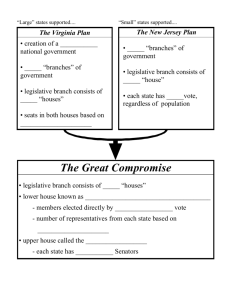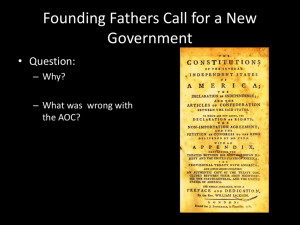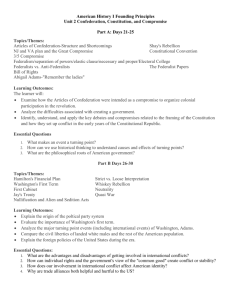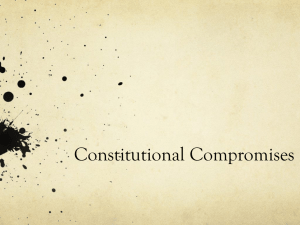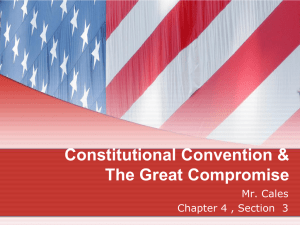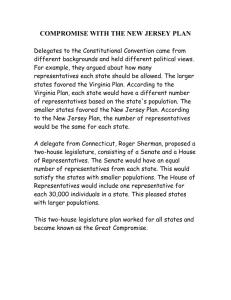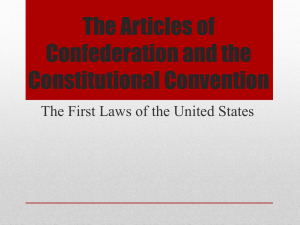Vocab 5.2
advertisement
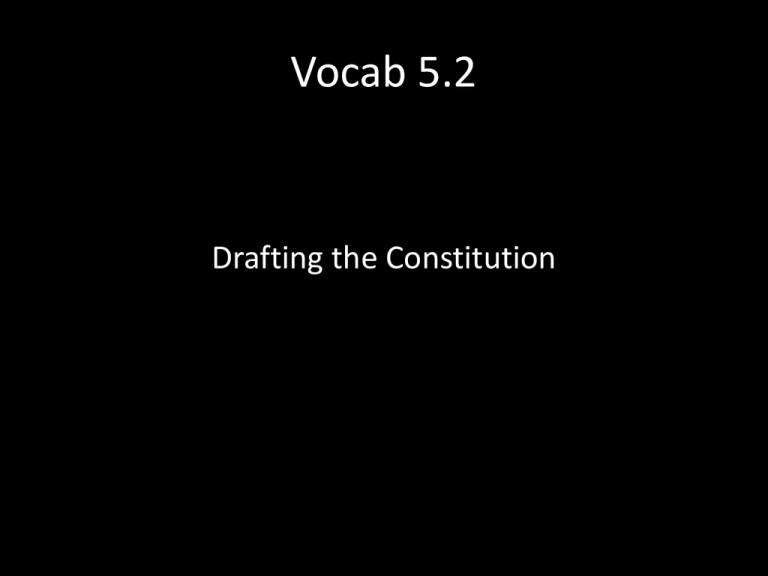
Vocab 5.2 Drafting the Constitution Shays’s Rebellion • An armed uprising that took place in Massachusetts in 1786 and 1787. The rebellion happened because of the economic hardship that followed the Revolutionary War. • The U.S. government had a hard time responding to the rebellion, exposing the weaknesses of the Articles of Confederation. Virginia Plan A plan, proposed at the Constitutional Convention. It was favored by states with large populations because the number of representatives given to a state in Congress was going to be based on the size of a states population. More people = more representatives New Jersey Plan • A plan proposed at the Constitutional Convention. It favored states with smaller populations because it gave all states an equal number of representatives regardless of population. • Size doesn’t matter, all states are equally represented. The Great Compromise • The Connecticut Compromise, also known as the Great Compromise of 1787 or Sherman's Compromise, was an agreement between large and small states which created the Legislative branch of the U.S. Government as it exists today. • It proposed a bicameral legislature, resulting in the current United States Senate and House of Representatives. Bicameral • A legislative body that has two branches or chambers. Legislative • Having the power to make laws. • In the United States the Legislative branch of the government consists of the House of Representatives and the Senate. • Legislative is often times used interchangeable with Congress. The 3/5ths Compromise • The 3/5 compromise was an agreement between the Northern and Southern states to count each slave as 3/5 of a person for representation purposes. • Slaves would also be counted as 3/5 of a person for tax purposes.

